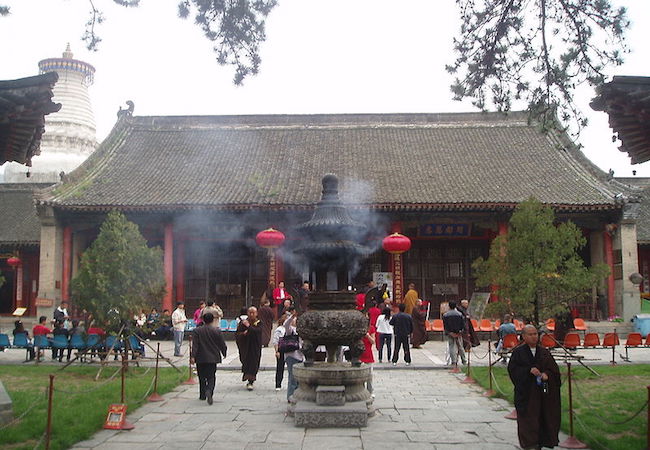
By Pengqiao Lu
Since 2014, the Dalai Lama has repeatedly expressed his wish for a pilgrimage to Wutai Mountain, which, if comes true, could be a major breakthrough on the Tibet issue.
Resistance to China’s central government’s rule in Tibet has continued since the 1950s. The long-standing policy—consolidating China’s rule and diluting the exiled Dalai Lama’s influence through promoting economic developments—is a failure, although Beijing does not want to admit it. The significance of the Dalai Lama to Tibetan governance has gradually been recognized by Beijing, prompting the two sides resume dialogues.
That said, the unbridgeable gap of political claims, deeply rooted mistrust and undermining by Chinese conservatives have lead to their three-decades of contacts ending in a bitter standoff. The two parties cannot even agree on what to talk about. Beijing insists the negotiations be limited to the Dalai Lama’s return and that the political status of Tibet is not open for discussions. This is something the Tibetan exile can never accept. While the Dalai Lama has softened his stance from seeking independence to achieving genuine autonomy, Beijing refuses to compromise. The latest round of formal talks unsurprisingly ended in a deadlock in 2012.
Beijing and the Dalai Lama have confirmed that they had informal talks about the possibility of Dalai Lama’s pilgrimage to Wutai Mountain. The Mountain, located in North China, is a sacred site to both Chinese and Tibetan Buddhists. It has an enduring relationship with Tibetan Buddhism, which can be dated back to the seventh century A.D.. The mountain continues to be a popular pilgrimage destination for Tibetans. Thus, the Dalai Lama’s visit could be easily justified using religious and historical facts.
As Tibetans celebrate the Dalai Lama’s 80th birthday around the world this year, the Tibetan issue will become more visible. International pressure on Beijing is very likely to increase. In this context, permitting the Dalai Lama’s pilgrimage to Wutai Mountain is in China’s best interests from many perspectives. First, frustration toward Sino-Tibet negotiations is a source of Tibetans’ support for riots and Chinese favoring a coercion policy in Tibet. The Dalai Lama’s trip would symbolize a concrete achievement of the negotiations, create an amiable atmosphere for further dialogues, and promote Tibet’s stability. Second, it would help China improve its image without making major political concessions. Since the Dalai Lama has indicated he will not set any preconditions for his visit, China can separate this visit from negotiations to avoid compromising on core disputes.
The trip will ease criticisms of China’s Tibet policy and human rights conditions. It would immediately be beneficial to China’s competition in the bid to host the 2022 Winter Olympics. Finally, it fits into President Xi’s new emphasis on the policy for a united front. Sensing increasing social grievances, the party recently put a focus on the united front, a policy of paying heed to different views of various social groups. Whether the Dalai Lama’s visit will come true or not is a litmus test for Xi’s commitment to this policy.
The conditions for this move are all in place: first, Xi Jinping has become the strongest leader since Deng Xiaoping, holding enough power to block opposition on this initiative; second, since Wutai Mountain is far away from Tibet, Beijing can easily control the trip including cutting off the Dalai Lama’s contacts with ordinary Tibetans and avoid contingencies.
Now it is the time for Beijing to make genuine efforts to solve the Tibetan problem. Permitting the Dalai Lama to visit Wutai Mountain and allowing this trip as soon as possible is a good start.




